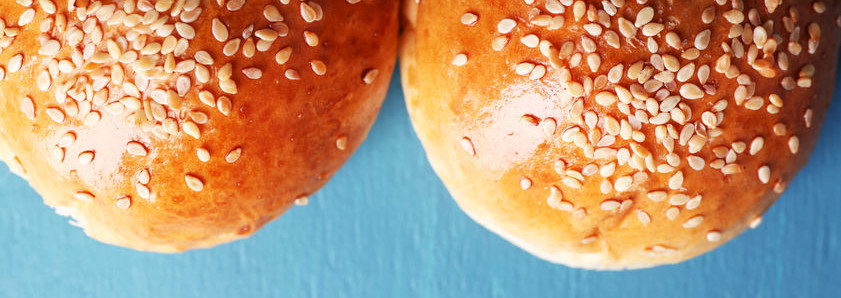
Egg washes are frequently used in bakeries to add a finishing-touch glaze to breads, pies, pastries and more. However, from rising egg prices to an increase of vegan products, many are searching for reliable egg wash substitutes.
What kind of replacements are there?
Like all ingredients, it depends on what functionality you’re looking for and why you’re replacing it in the first place. Egg washes are typically used as a:
- Surface browner: When used to finish the surface of a bakery product, the mixture is brushed on prior to baking, usually an item with a crust such as pies, bread rolls, breads, Cornish pasties, empanadas, etc.
- Binder: When used as a binder, an egg wash can help the coating of food being dredged to stick on better. pies or bread with decoratives. Salt in an egg wash helps break down the protein in the eggs, helping crumb coatings, etc, stick better to the wash. Ground spices such as cinnamon or nutmeg adds surface flavoring and a bit of coloring. Here oils, butter and other lipid-based EWR will be too slippery to keep seeds, nuts, etc. to stick.
- Sealer: An egg wash can also “seal” the surface of a food item against moisture from the anticipated filling.
Here are a few common egg wash substitutes:
- Proteins: good crust browning, but lacks shine
- Oil: good shine and crunchy texture but doesn’t allow sticking for nuts, seeds, etc.
- Milk or Cream: recreates egg color without unwanted oil flavor
- Polysaccharides (Starch, Xanthan Gum, Alginates): Corn starch can add gloss to the surface of baked goods. It should be applied immediately after baking, rather than before baking, to prevent over-browning.
See our full list of egg wash substitutes here!

